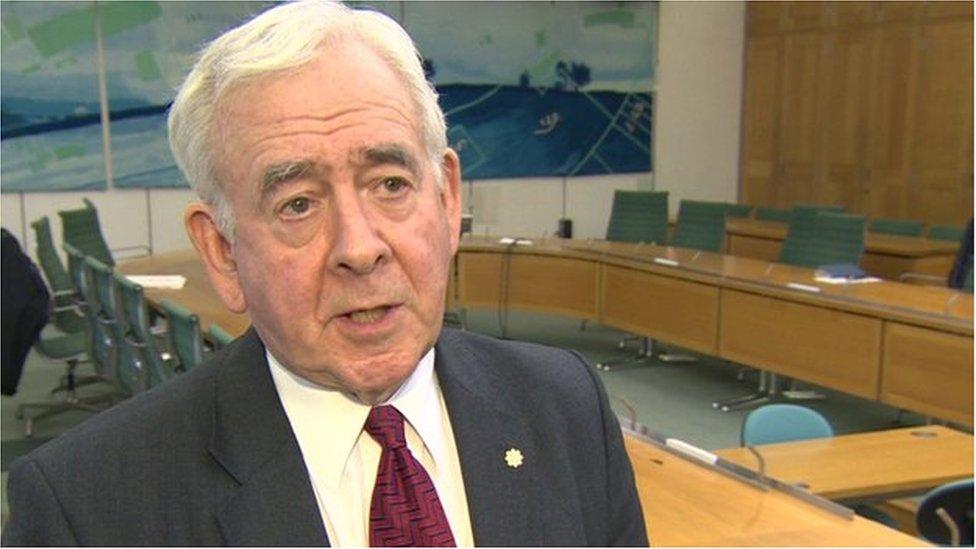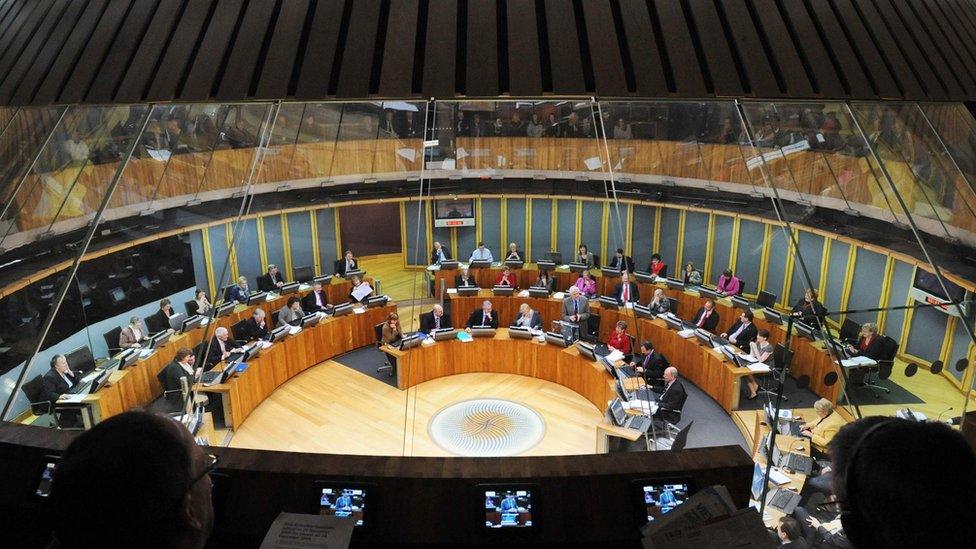Teachers' pay to be devolved to assembly in Wales Bill
- Published

Control over teachers' pay and conditions will be devolved, Welsh Secretary Alun Cairns has announced.
He said it "makes sense" for pay to be handled by AMs and Welsh ministers as education is already devolved.
The Welsh Government described the move - part of planned changes to the Wales Bill which sets out the next steps for Welsh devolution - as "encouraging".
But two major teaching unions say they are opposed to the idea, fearing lower pay than in England.
The move is one of several improvements demanded by First Minister Carwyn Jones for the bill, which the Welsh Government says it is not yet ready to support.
The announcement was made as the much-criticised bill, which makes significant changes to the way power is shared between Wales and Westminster, returned to the House of Lords for debate on Monday.
'Clear and lasting'
"Education is a devolved matter, and it makes sense for the assembly and Welsh ministers to decide the pay and conditions of teachers' in Wales," Mr Cairns said.
The amendment to the bill on teachers' pay will be debated next Monday.
Powers over the community infrastructure levy - which allows councils to raise cash for local improvements - will also be devolved, Mr Cairns added, with further changes promised in the coming weeks.
"I want a clear and lasting devolution settlement that works for Wales and for the UK as a whole," he said, adding he was happy to consider devolving further powers "where there's a clear purpose for doing so".

However Geraint Davies, Wales official for the NASUWT union, said teachers in Wales were "best served by a continuous link with Westminster".
He said: "We strongly believe that if pay and conditions were devolved there is every danger that teachers here could end up being paid less than across the border for doing the same job."
Mr Davies added if wages were higher in England there was also a risk of teachers leaving Wales to further their careers.
Owen Hathway, policy officer for NUT Cymru, also said his members were opposed to the move.
"We are fearful that we will have terms and conditions that are depressed and will lead to lower wages," he said.
"When you think there is a teaching shortage in England, if you pay them more in England it could lead to a brain drain of teachers going across the border.
"But the political will is there for it to happen."
Earlier in October, Mr Jones told Mr Cairns the UK government's approach to the legislation would "heavily" influence whether his government recommends the bill to the assembly - saying he was not yet ready to do so.
'Note with interest'
A Welsh Government spokeswoman said: "As the first minister's recent letter to the Secretary of State (Alun Cairns) made clear, we are not currently in a position to support the bill and there are a number of obstacles still to overcome.
"However, these are encouraging amendments from the UK Government, and we note with interest the promise of further changes in the coming weeks."

Lord Wigley said "joint jurisdiction" had not served Wales particularly well
During the debate concerns were also raised about a lack of power Wales has over it courts and prisons.
Lord Wigley said it was not acceptable there was no crown court west of Swansea, or between Swansea and Caernarfon, and no crown court between Merthyr and Mold.
He added: "Wales is able to decide on the siting of its schools and hospitals, but not on its courts and prisons."
Unnecessary change
Baroness Morgan, shadow minister for Wales in the House of Lords, said it was premature to talk about establishing a separate legal jurisdiction for Wales, but said the issue did need to be addressed.
Lord Wigley withdrew his amendment on legal jurisdiction, but said he hoped the focus would remain on such issues.
- Published30 October 2016

- Published28 October 2016

- Published29 February 2016
